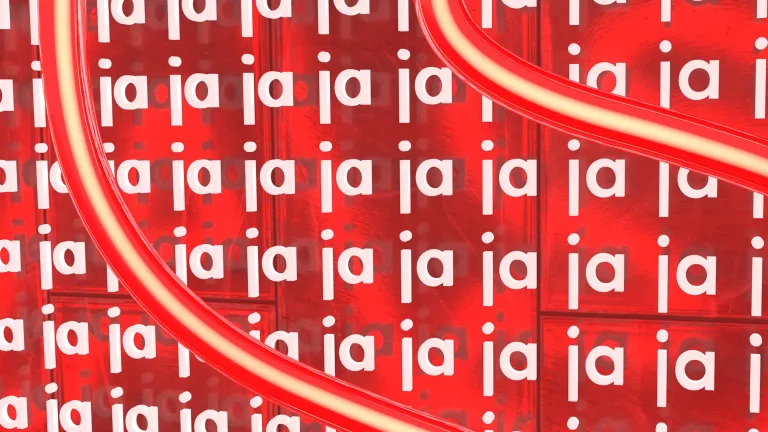AIR IN A BALOON
INTERACTION | 2021
What really is power? Foucault in his History of Sexuality defines it this way: “Power is not an institution, and not a structure; neither is it a certain strength we are endowed with; it is the name that one attributes to a complex strategical situation in a given society”[1]. Foucault describes and considers the operation of the apparatus of government: governing people, self-government, and traces the moment of transition from the mechanisms of the law, through disciplinary mechanisms, to the so-called mechanisms, or techniques of apparatuses of securityThese mechanisms are formed in certain specific moments. For the rule of law this is sixteenth-seventeenth century, for the disciplinary state – seventeenth-eighteenth century, and since late eighteenth century the state has been organized by the mechanisms of security. This is the threshold of modernity, which – according to Foucault – has continued until now (it is characterized by all the American and European techniques of government currently implemented)[2]. These mechanisms of security as mighty techniques of power involve a whole series of phenomena that influenced their shape. These techniques are based on incorporating and exploiting what is “natural” for life processes, which is related to the functioning of the flesh and the body. The transition was marked by the emergence of a formation characteristic of this period, that is population and by the change of attitude of the sovereign towards the mass of people who constitute the population – that is the change of the attitude of sovereign power to this new type of “being”.
Within sovereign power involves the managing of citizens as legal subjects. Sovereign power was a repressive power, which took one’s life or let one live, and its symbol was the sword[3]. The right to live is constituted through the lawful killing being exercised or refrained from. Power over life is expressed through death or the possibility of letting one live. The transformation of this oppressive rule of sovereignty consists in power condemning subjects to live through mechanisms of security. Therefore, a different economy of implementing power is employed. In the West, since the classical period, the right of seizure, as the collection of tax required by the sovereign, has ceased to be of primary importance. From this time onwards, power has become one component among many types of actions and mechanisms whose purpose is control, organization, and supervision of the forces being tamed. The role of power becomes ordering and producing, not destruction. The right to kill shifts: the power to bring death is complemented by the power to rule over life – exercising control over life itself, by its amelioration and multiplication. Wars are no longer waged for the glory of the sovereign and in his name, but in the name of protecting the lives of all citizens. One trains populations to kill each other in the name of survival. “Massacres have become vital”[4]. In this constellation of power, one consents to killing in order to preserve life. The tactics of a battle becomes a strategy in relations between states; the threat is no longer directed at the sovereign, but at the biological existence of the entire population. Power is therefore exercised on the level of the species, life, race, and mass population phenomena. It functions by the power of the new law of preserving life (or casting into death), replacing the old law of the power of letting one live or taking one’s life
Consequently, we are no longer dealing with human kind, but a species that is subject to the same processes that affect all other living beings. Humanity is perceived exclusively in biological terms. Foucault emphasizes that the understanding of population as a species was complemented by the phenomenon of “the public”. The public (in the eighteenth-century understanding) is considering population from the point of view of its behaviours, habits, fears, and expectations – in other words from the point of view of its societal norms (which makes it the object of convictions or education). This new perspective broadened the range of understanding what a human being is. From now on, the human being (in the individual and in the collective dimension), both as a biological and as a public entity, has become susceptible to the operation of numerous factors[5]. Statistics allows a quantitative capturing of phenomena, but is also a method which leads to the discovery of regularities concerning population (such as deaths, illnesses, accidents). Along with the development of methods of analysis, the question of how family is approached is also changed. Before, family was a model of government, while in the new constellation of power, family becomes a component of population. It is a segment (admittedly, a privileged one), but it changes from a model into a tool for governing population[6]. Beginning in mid-eighteenth century, that is the times of campaigns concerning mortality, vaccinations, inoculations, family begins to perform a subservient function in relation to population, thus becoming a tool of power. An opening takes place in the art of government (signalised since sixteenth century by Machiavelli’s The Prince as well as by anti-Machiavellian literature). Population also becomes a tool for performing certain tasks: improving the conditions of its existence, its longevity, its wealth. Population becomes a means and an end of government. Population itself is aware of what it wants, although not of operations it is subjected to. Knowledge on governing population is linked to economic knowledge. In this case, we are dealing with the emergence of political economy and another transformation – transition from the art of government to political science. What happens to sovereignty in this case? It does not go away, on the contrary, more and more radical means are employed to institutionalise sovereign power. Government aimed at population employs security apparatuses. Population becomes the goal of these new techniques, and together with political economy (as a field of study and as a technique of government intervention) a new area of reality is produced.
How does the appropriation of the flesh and the body by political mechanisms take place? The question of ruling (governing over a given area and over a certain community), leads to the formation of mechanisms and techniques that all aim at allowing power to be exercised in the most efficient way and to be used for maximum benefit. But governing in the political sense does not appear all at once; it emerges gradually: Foucault analyses treatises on governing – advice on the effectiveness of governing and being governed. These treatises appear from fifteenth to eighteenth century. In a lecture from February 1st, 1970(Security, Territory, Population)he analyses Machiavelli’s The Prince and juxtaposes it with other texts (mostly anti-Machiavellian literature), attempting to determine what it means to “govern a state”. Governing is in no way obvious, growing directly out of the entity of “state”. The ability to govern is a process in which strategies are developed in a network of discourses: they emerge from a series of various cuts and transpositions. Clever use of power (by the sovereign) is not, however, the same as the “art of government”. Foucault invokes a 1567[7] text by one of the first anti-Machiavellian authors, one de La Perriere, entitled Mirror of Policy or On Diverse Manners of Government. According to the author, governments fall into many categories. These include the instance of the father of the family, prior of a cloister or a teacher. Among them there is also the kind of government exercised by a prince over a state. Another text quoted here comes from seventeenth century. Its author – Francois La Mothe Le Vayer – classifies three types of government: the government of oneself (determined by the moral norms one accepts), governing over a family (through economic conditions), and finally governing a state through politics. The continuity between these three forms would be significant here, while in the doctrine of the prince as the sovereign we notice a lack of continuity between his rule and other kinds of power. Why is this significant? Because it proves that a major factor of maintaining continuity becomes the government of the family. The economic factor comes into play here, with the question of how to govern wealth, the goods belonging to an individual within a family so as to apply them in the field of politics[8]. In eighteenth century economy in the modern understanding emerges; good government is economic government. From this time on, economy becomes a form of government determining the level of reality, the area of governments’ intervention. In La Perriere’s text mentioned above, a new definition of government appears, taking into consideration governing over things. You govern things in order to achieve a goal[9].
In Machiavelli’s The Prince it is the territory and the people that are subject to government. The legal principle at the root of sovereignty says that one governs a territory along with its inhabitants, but not things. The old principle of sovereignty had a circular structure: the aim of sovereign power was sovereignty itself, the good was obeying the law, the goal was the obedience of the subject in the face of power. People as a community belonged to a territory, whose sovereign was the ruler, and they were his subjects (he could condemn them to die or allow their lives to continue). Foucault notes that in the new definition of government the point is not to juxtapose things and people Things are also people , together with their mutual relations. Bound with other things (wealth, resources, means of survival) and with territory together with its properties (soil, climate, shape). They are also people, together with their customs, habits, ways of acting and thinking, struggling against misfortunes (epidemic, hunger, death). From the perspective of government, the law stops being a superior means, and the essence of laws are now tactics. The government achieves its goals without referring to the law. From sixteenth century onwards, theories of the art of government are connected with the development of the administrative apparatus of territorial monarchies, as well as with analyses; government becomes a significant branch of knowledge..
As a conclusion of the above consideration on the politics of government, I wish to pose a question: where is the border line – the limit of our endurance, our awareness. For this purpose I will use the symbolic motif of a balloon. Who governs the air in a balloon? Who owns the mixture of gases filling it? Does it belong to the person from whose lungs the air came out? Or maybe it is the one who is playing with the balloon at the moment? Or does it belong to the balloon itself? Or – perhaps the air governs the balloon and is superior to it? These questions are potentially endless. Would the person playing with the balloon continue playing if they knew to whom the air filling it belongs (in whose organism it was before)? We can ask about the limits of endurance of the balloon’s walls. When will the limit be exceeded, leading to the balloon’s destruction? And perhaps we should be concerned about the waste of air that will be lost when the balloon explodes? Or about the condition of the lungs of the person who filled it? And perhaps we may want to ask about whether we are breathing the same air?
[1] Michel Foucault: History of Sexuality. New York 1978, transl. Robert Hurley. Pantheon Books, p. 93.
[2] Michel Foucault: Security, Territory, Population. Lectures at the College de France 1977-78. transl. Graham Burchell.transl. Graham Burchell. London 2009, Macmillan, p. 21-22. transl. Graham Burchell. London 2009, Macmillan, p. 21-22. London 2009, Macmillan, p. 21-22.
[3] Michel Foucault: History…, s. 136.
[4] Michel Foucault: History…, s. 137.
[5] Michel Foucault: Security…, s. 105.
[6] Ibidem, p. 141.
[7] Michel Foucault: Security…, s. 131.
[8] Michel Foucault: Security…, s. 132.
[9] Ibidem, p. 134.


